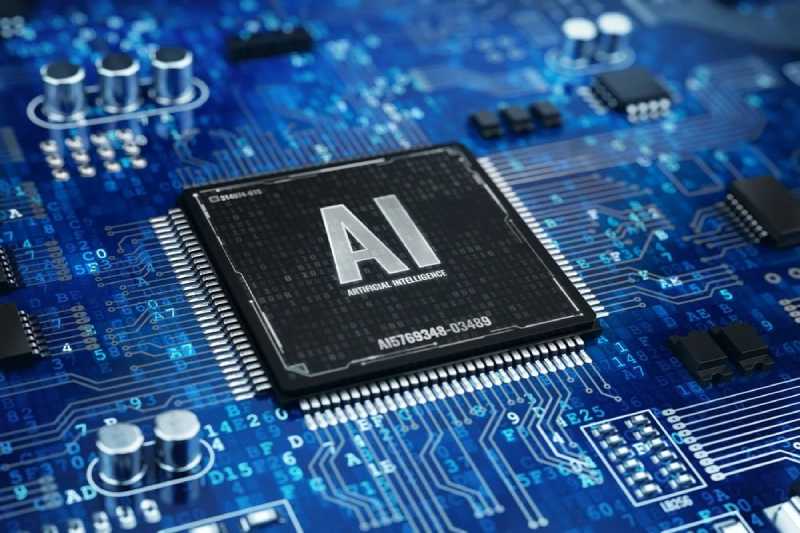At the CES technology trade show, artificial intelligence is taking center stage as industry leaders in chip manufacturing compete to release the most potent AI chips on the planet.
Prior to the formal start of CES on Monday, U.S. corporation Nvidia, which has been the market leader in AI chips since last year, presented three new graphics processing units (GPUs) in a virtual event.
The RTX 4060 Super, RTX 4070 Ti Super, and RTX 4080 Super are three new GPUs from Nvidia that the company says will power “AI-ready laptops.” At the event, a number of PC manufacturers, including Acer, Dell, HP, Lenovo, and Samsung, presented new models that came with the newest chips from Nvidia.
“Looking forward, AI experiences will be delivered with a hybrid of cloud and PC computation,” said Nvidia Senior Vice President Jeff Fisher.
Since ChatGPT’s release, there has been a significant increase in the demand for the company’s high-end AI chips as more businesses begin to train and use generative AI, which depends on data centers and cloud services to run massive language models.
The U.S. government has barred the shipment of Nvidia’s top-tier AI processors, the A100 and H100, as well as their Chinese equivalents, the A800 and H800, to China unless a license is obtained. In October, Washington’s latest export restrictions on semiconductors also affected the GPU known as RTX 4090, which is primarily used in gaming systems.
Yet, the company stated that there will be no export limitations from the US on the three new GPUs that were unveiled at CES. The new chips will be ready for purchase in late January, according to Nvidia’s China website.
Because their server versions operate massive language models in data centers, Nvidia has been the early leader in AI chips. Still, rival chip manufacturers are attempting to overtake. One approach is to prioritize local computing over cloud services.
Companion US firms Intel and AMD are placing bets on the idea of the AI PC—personal computers equipped with AI chips that can run AI models locally without relying on the cloud—despite not having fully capitalized on the AI boom.
At CES, both manufacturers unveiled a range of new chips designed specifically for AI personal computers.
In contrast to ordinary PC chips, AI PC chips feature a specialized neural processing unit (NPU) that can handle activities related to AI without requiring cloud services.
Manufacturers claim that compared to standard PCs, AI personal computers will offer more data privacy, longer battery life, and more AI applications because of the extra NPU.
However, until more AI native applications are developed, customers may take some time to adopt AI personal computers, according to Intel and AMD executives who spoke with Nikkei Asia at the Las Vegas event. As a result, the first few generations of these machines won’t differ significantly from traditional PCs.
Even still, AMD and Intel continue to promote their products at CES, with Intel CEO Pat Gelsinger seeming to downplay the opposition.
“We are the driving force. … We love it when people copy us,” Gelsinger said during a CES keynote speech on Tuesday.
Don Woligroski, senior product marketing manager for client consumers at AMD, refuted this, pointing out that AMD had been supplying AI PC chips for a considerable amount of time prior to Intel.
But Woligroski emphasized that these kinds of arguments are not the main topic. At a Tuesday media event, he told Nikkei, “Now it’s not a race between chipmakers, it’s a collective effort to make the industry transition into AI PCs.”
On Tuesday, Intel also unveiled an AI processor designed for automobiles. The chip will be implemented by Zeeker, an electric vehicle brand owned by Geely, the largest automobile company in China, as the lead automaker.


 Business3 weeks ago
Business3 weeks ago
 Business4 weeks ago
Business4 weeks ago
 Business4 weeks ago
Business4 weeks ago
 Technology4 weeks ago
Technology4 weeks ago
 Business2 weeks ago
Business2 weeks ago
 Technology3 weeks ago
Technology3 weeks ago
 Technology3 weeks ago
Technology3 weeks ago
 Technology2 weeks ago
Technology2 weeks ago




